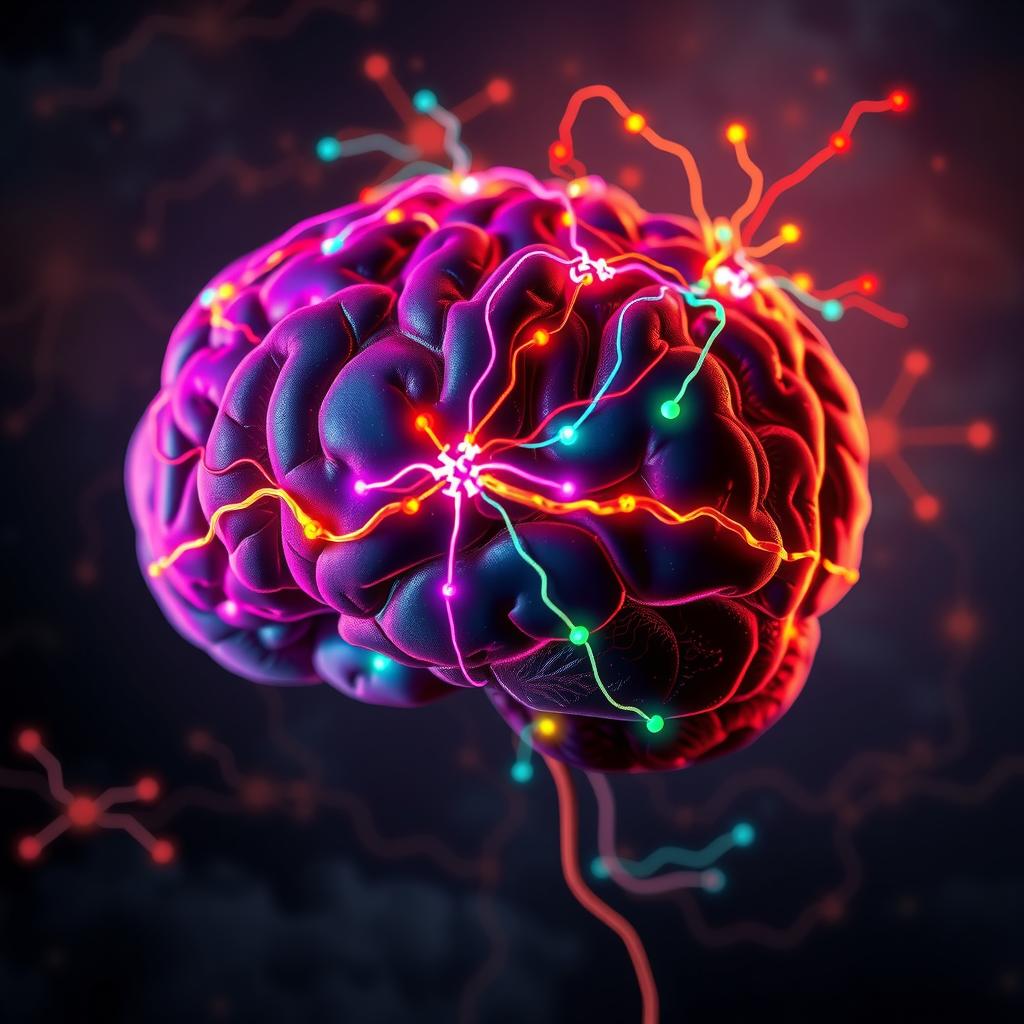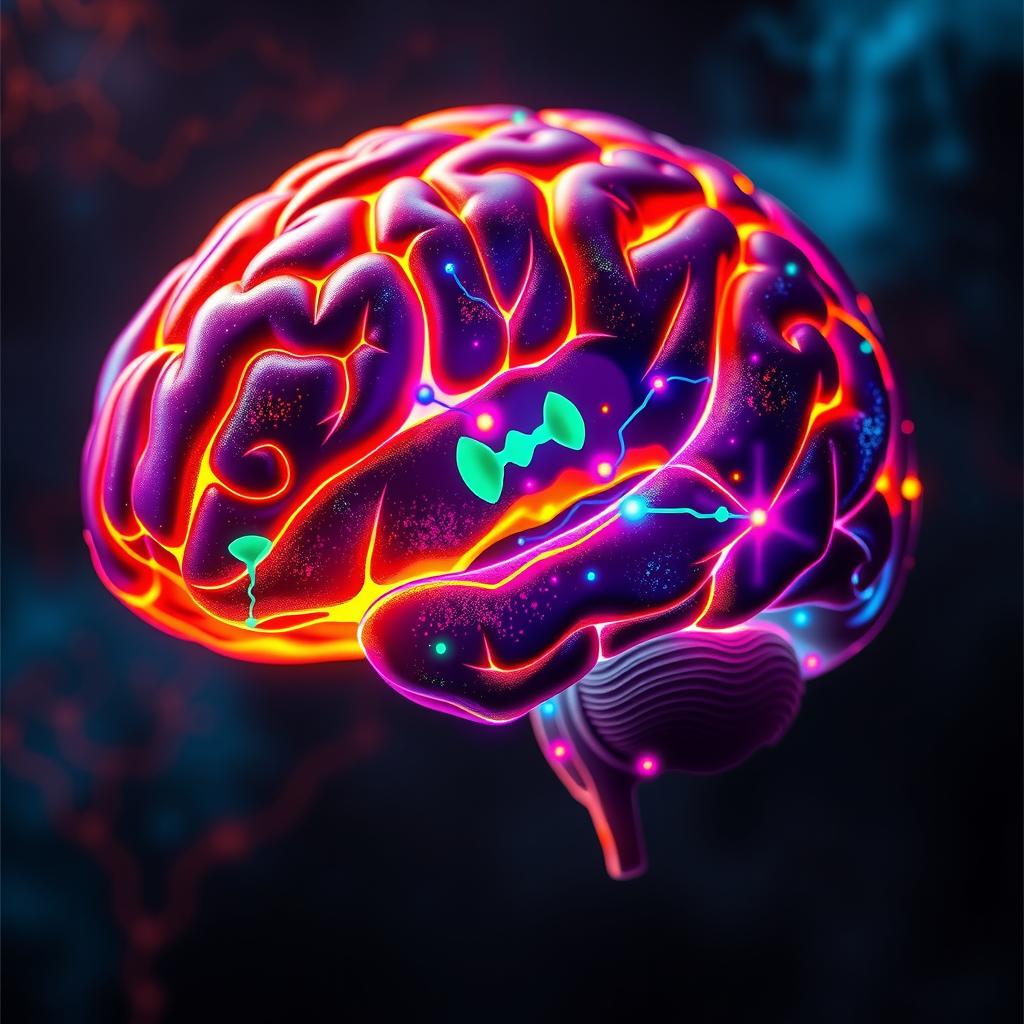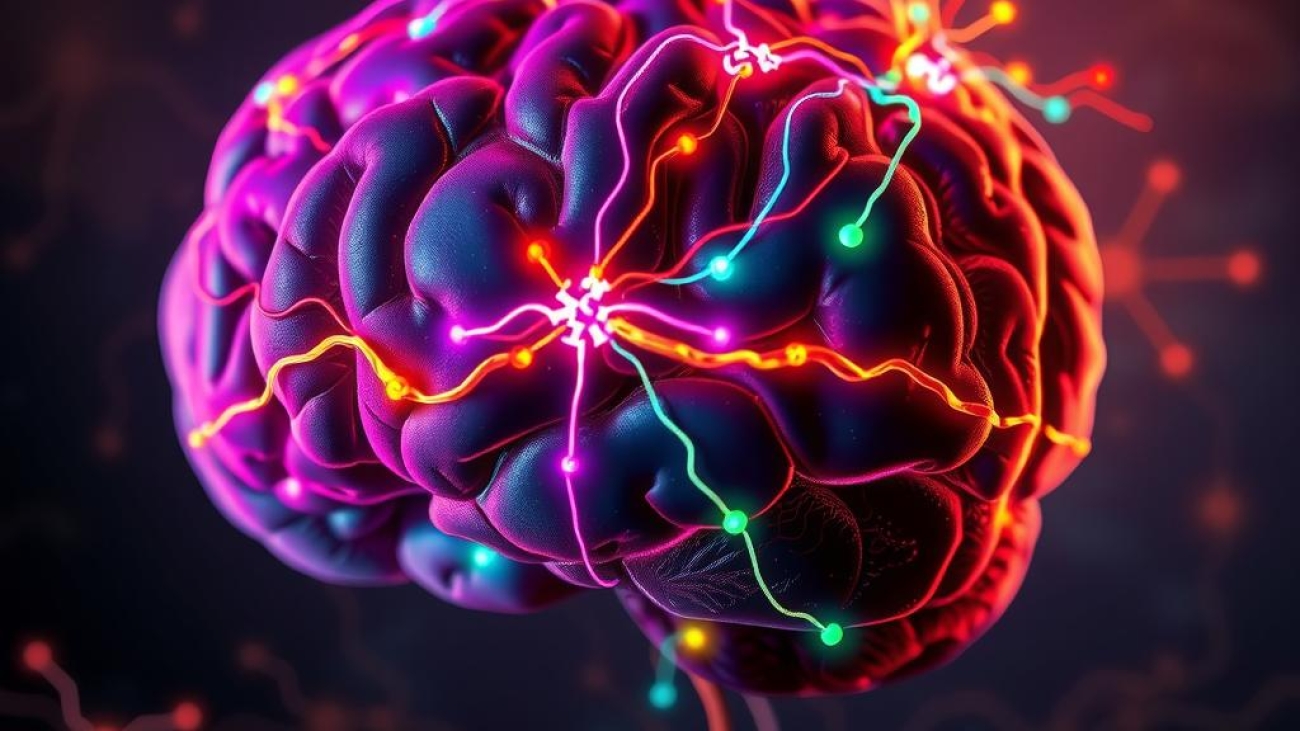In today’s fast-paced world, anxiety disorders have emerged as a prevalent concern, affecting millions of individuals globally. The rising rates of anxiety-related issues prompt questions about the underlying mechanisms and effective strategies for management. With neuroscience at the forefront of this exploration, groundbreaking research is unveiling new insights that could revolutionize how we understand and treat these complex conditions. This blog post delves into recent breakthroughs in neuroscience related to anxiety disorders, shining a light on innovative treatment options that transcend traditional approaches.
As scientists probe deeper into the brain’s intricacies, they are uncovering critical findings that link neural pathways to emotional regulation and stress response. These revelations not only enhance our comprehension of mental health but also pave the way for improved therapeutic interventions tailored to individual needs. By examining how specific brain regions interact during episodes of anxiety, researchers are developing novel psychological therapies aimed at reprogramming maladaptive responses to stress.
Moreover, advancements in neuroimaging technologies allow clinicians to visualize brain activity in real-time, providing invaluable data that informs treatment plans. Such innovations hold promise for optimizing existing methods while also facilitating personalized care options based on each patient’s unique neurological profile. The interplay between psychology and biology has never been clearer; understanding this connection is essential for fostering resilience against anxiety.
This article aims to explore these exciting developments within neuroscience, highlighting significant research findings that contribute to a broader understanding of anxiety disorders. Readers will discover how emerging treatments grounded in scientific evidence can offer hope where conventional therapies may fall short. Through an engaging analysis of current studies and their implications for future practices in stress management, this discussion invites readers on a journey toward enhanced mental well-being—a journey informed by science yet deeply personal.
Join us as we navigate through the landscape of contemporary neuroscience breakthroughs that are shaping the future of mental health treatment options—offering not just relief from symptoms but pathways toward lasting recovery and empowerment against anxiety disorders.

Key Points:
- Title of the Point: Advanced Neuroimaging Techniques
Recent advancements in neuroscience have introduced advanced neuroimaging techniques that enable researchers to visualize and understand the brain’s intricate networks associated with anxiety disorders. By mapping specific neural circuits involved in fear response, these methodologies provide critical insights into how anxiety manifests and can be managed. This understanding is essential for developing targeted psychological therapy approaches designed to address the unique mechanisms underlying each individual’s experiences with anxiety. - Title of the Point: Integrating Behavioral Interventions
Innovative research findings emphasize the importance of integrating behavioral interventions with biological insights derived from recent breakthroughs in neuroscience. This multidimensional approach aims to enhance treatment options by addressing both symptoms and their root causes simultaneously. As mental health practitioners adopt this strategy, they are better equipped to tailor treatments according to individual needs, fostering a more personalized care model that resonates deeply with those suffering from anxiety. - Title of the Point: Empowering Personalized Care
The ongoing exploration within neuroscience not only sheds light on emotional well-being but also empowers individuals grappling with stress management challenges linked to anxiety disorders. By leveraging tangible scientific progress, there is a growing movement towards developing tailored therapies that reflect personal experiences rather than one-size-fits-all solutions. As society embraces these innovative strategies rooted in empirical evidence, hope flourishes amidst what was once considered an insurmountable challenge for many facing mental health issues related to anxiety.

The Neural Basis of Anxiety Disorders
Exploring the Connection Between Neuroscience and Fear Responses
The intricate relationship between anxiety disorders and neural circuits has garnered significant interest in recent years, shedding light on how fear responses are orchestrated within the brain. At the core of this exploration lies the amygdala, a crucial structure responsible for processing fear stimuli. Research findings suggest that heightened activity in the amygdala correlates with increased anxiety levels, indicating its central role in emotional regulation. Furthermore, studies have identified pathways connecting the amygdala to regions such as the prefrontal cortex (PFC) and hippocampus, which together facilitate a balanced response to stressors. The PFC is essential for higher-order cognitive functions like decision-making and impulse control; thus, disruptions here can exacerbate anxiety symptoms by impairing rational thought during stressful situations. This interplay among various brain regions emphasizes how understanding their collaboration can inform effective treatment options.
Breakthroughs in Treatment Approaches
Leveraging Neuroscience Insights for Therapeutic Strategies
Recent breakthroughs in neuroscience have opened new avenues for treating anxiety disorders, particularly through pharmacological interventions and psychological therapy techniques. Medications targeting neurotransmitter systems—such as serotonin reuptake inhibitors (SSRIs)—have shown promise by modulating neurochemical imbalances associated with anxiety. Moreover, advancements in psychological therapies incorporate these neurological insights into practice; cognitive-behavioral therapy (CBT), for example, aims to reshape maladaptive thought patterns linked to dysfunctional neural pathways. Such therapeutic approaches not only address immediate symptoms but also strive to recalibrate underlying neural mechanisms over time. As research continues to unveil more about these connections between brain function and behavior, it becomes increasingly clear that integrating neuroscience into clinical practices enhances treatment efficacy.
Understanding Stress Management Techniques
Bridging Neurobiology with Everyday Coping Strategies
Incorporating knowledge from neuroscience into stress management techniques offers valuable insights for individuals grappling with mental health challenges related to anxiety disorders. For instance, mindfulness meditation has been demonstrated to reduce activity within hyperactive areas like the amygdala while promoting connectivity with regulatory centers such as the PFC. This suggests that mindfulness may foster resilience against stress by retraining one’s response patterns at a neurological level—a concept supported by numerous empirical studies highlighting its effectiveness across diverse populations dealing with chronic anxiety or panic attacks. Additionally, physical exercise emerges as another powerful intervention: engaging in regular aerobic activities has been associated with improved mood stabilization due to neurogenesis—the creation of new neurons—which aids recovery from periods of intense fear or worry.
Future Directions in Research
Innovating Mental Health Solutions Through Continued Study
The future landscape of treating anxiety disorders stands poised at an exciting crossroads driven by ongoing research initiatives focused on unraveling complex brain networks involved in fear processing responses further still might lead us toward novel therapeutic innovations tailored specifically for individual patients’ needs based on unique biological profiles observed via advanced imaging technologies like fMRI or PET scans.. By identifying biomarkers indicative of specific types—and severities—of anxiety conditions researchers hope develop targeted strategies rather than adopting a one-size-fits-all approach currently prevalent today . These efforts underscore commitment towards enhancing patient outcomes through personalized care models built upon rigorous scientific evidence generated from cutting-edge studies exploring intersections between neuroscience, psychology ,and everyday lived experiences surrounding mental wellness journeys .
Innovative Strategies in Mental Health Treatment
Merging Therapy and Neuroscience for Comprehensive Care
Anxiety disorders have become increasingly prevalent, affecting millions worldwide. Recent research findings underscore the necessity of integrating neuroscience with traditional psychological therapy to develop innovative treatment options that can enhance patient outcomes. These multidimensional strategies aim to provide personalized care tailored to individual needs, recognizing that anxiety manifests differently across different individuals. By leveraging insights from neuroscience, clinicians can better understand the biological underpinnings of anxiety disorders, such as alterations in brain function or neurochemical imbalances. This understanding allows for more targeted interventions—combining cognitive-behavioral approaches with pharmacological treatments designed to correct these imbalances and optimize mental health. The intersection of therapy and biology is not just a novel idea; it represents a paradigm shift towards more effective management of anxiety through personalized care plans.
Bridging the Gap between Behavioral Insights and Biological Knowledge
Understanding the Role of Personalized Interventions
Another critical aspect in addressing anxiety involves recognizing how behavioral patterns interact with biological factors within each patient’s unique context. Each individual’s experiences shape their responses to stressors, necessitating an approach that considers both psychological and physiological dimensions simultaneously. For example, recent breakthroughs in neuroimaging techniques have enabled researchers to visualize brain activity during therapeutic sessions, providing valuable data on which areas are most affected by anxiety triggers. Such insights inform adjustments in treatment protocols by highlighting which therapies resonate best with specific neural pathways associated with fear responses or emotional regulation. Moreover, this integration supports stress management initiatives aimed at equipping individuals with coping strategies while also considering their biochemical profiles—creating a holistic framework that enhances resilience against future episodes.
Neuropsychology’s Impact on Anxiety Treatments
Utilizing Research Findings for Tailored Approaches
The field of neuropsychology significantly contributes to developing advanced treatments for anxiety disorders by emphasizing evidence-based practices derived from rigorous research findings. Clinicians are now equipped with sophisticated tools derived from neuroscientific studies that reveal how various forms of therapy influence brain circuitry involved in emotional processing. Consequently, combining cognitive-behavioral therapies (CBT) with mindfulness practices has shown promising results; these combined methods help reshape negative thought patterns while actively engaging regions like the prefrontal cortex responsible for executive functioning and impulse control. Implementing such integrative models not only addresses immediate symptoms but also fosters long-term changes within patients’ neurological frameworks—a key element when pursuing enduring mental wellness.
Challenges Ahead: Implementation Barriers
Overcoming Resistance to Integrated Solutions
Despite significant advances toward integrated treatment methodologies focusing on both behavioral and biological aspects of mental health care, practitioners face challenges regarding acceptance among stakeholders—from healthcare providers to patients themselves—and systemic barriers inhibiting widespread implementation across diverse settings nationwide. Many professionals remain entrenched within traditional modalities due largely due skepticism about efficacy stemming from lackluster outcomes associated solely relying upon either pharmacological agents or standard psychotherapies without factoring personal nuances into clinical decisions made daily throughout practice environments today! Efforts must be directed toward educating healthcare professionals about emerging developments whilst advocating collaboration amongst disciplines—including psychologists working alongside neurologists—to foster comprehensive ecosystems capable delivering optimized support systems necessary navigating complexities arising amidst treating complex conditions like chronic anxiety effectively over time!
Future Directions: Advancements Towards Holistic Solutions
Expanding Access Through Technology Integration
As technology continues transforming healthcare landscapes globally—with teletherapy platforms gaining traction—it opens avenues previously unattainable concerning accessibility equitable access quality services regardless geographic limitations where resources may otherwise prove scarce if reliant solely upon conventional delivery methods alone! Digital tools harnessed effectively could facilitate ongoing monitoring progress ensuring timely adjustments remain possible aligning interventions meeting evolving demands reflecting individual patient’s journeys navigating recovery paths uniquely tailored according respective circumstances experienced throughout lives lived today battling pervasive issues surrounding debilitating effects stemming untreated/unmanaged levels chronic stress impacting overall well-being negatively every moment endured collectively shared experiences faced together ultimately paving way brighter futures ahead filled hope renewed sense purpose restored connections built around mutual understanding compassion growth realized collaboratively moving forward united efforts focused enhancing collective knowledge sharing innovations born passion dedication striving improve lives impacted adversely prevailing societal challenges witnessed persistently confronting daunting realities underscoring urgent need action taken unite forge partnerships drive meaningful change improving outcomes those struggling silently living shadows fears anxieties felt deeply yet often unspoken hidden beneath surface awaiting light shine brightly illuminating path healing awaits them all finally reclaiming power lost long ago rediscover joy found countless moments cherished anew thriving despite odds stacked heavily against them one day at time!
The Promise of Neuroscience in Mental Health Care
Exploring Innovative Solutions for Anxiety Disorders
In recent years, the field of neuroscience has made remarkable strides, offering new avenues of hope for individuals grappling with anxiety disorders. As research findings continue to illuminate the intricate workings of the brain, scientists are discovering novel ways to understand and combat these prevalent mental health challenges. One significant breakthrough is the development of neuroimaging techniques that allow researchers to visualize brain activity in real-time. This advancement is crucial because it helps identify specific neural pathways involved in anxiety responses, paving the way for targeted interventions.
Moreover, innovative treatment options have emerged from this growing body of knowledge. For instance, neuromodulation therapies such as Transcranial Magnetic Stimulation (TMS) and Deep Brain Stimulation (DBS) offer promising alternatives to traditional pharmacological approaches. These methods work by altering neuronal activity through electromagnetic fields or electrical impulses, respectively. Research indicates that TMS can significantly reduce symptoms of anxiety by enhancing connectivity within brain regions responsible for emotional regulation—a discovery that speaks volumes about how tailored treatments could transform lives.
Additionally, integrative approaches that combine cutting-edge neuroscience with established psychological therapy practices are showing great promise in managing anxiety disorders effectively. By incorporating mindfulness techniques rooted in cognitive behavioral therapy (CBT), practitioners can create a comprehensive treatment plan that not only addresses symptoms but also promotes long-term resilience against stressors. This synergy between scientific progress and therapeutic strategies supports an evolving paradigm where patients feel empowered rather than merely treated.
As we delve deeper into understanding the biological underpinnings of anxiety through ongoing studies—ranging from genetic research to investigations on gut-brain interactions—we find ourselves at a pivotal moment in mental health care history. Future advancements hold potential not just for stress management, but also for redefining how society perceives and treats mental health conditions overall. It’s evident that hope lies within these scientific endeavors; they signal a shift towards more personalized medicine capable of addressing individual needs while combating stigma surrounding mental illness.
The landscape ahead appears increasingly optimistic as researchers remain committed to uncovering more about our brains’ complexities and their impact on emotional well-being. Ultimately, this journey through neuroscience signals a future where individuals facing anxiety disorders may look forward not only to improved treatment options but also an enriched quality of life characterized by greater self-understanding and empowerment.
FAQ:
Q:What are the latest neuroscience breakthroughs in understanding anxiety disorders?
A:Recent neuroscience breakthroughs have enhanced our comprehension of how specific neural circuits function in relation to fear response and regulation. Advanced neuroimaging techniques have identified these critical pathways, which may lead to more effective psychological therapies tailored for individuals suffering from anxiety disorders.
Q:How do these advancements change treatment options for anxiety disorders?
A:The integration of behavioral interventions with biological insights signifies a transformative shift towards personalized care. These innovative treatment options aim not only at alleviating symptoms but also addressing underlying causes, thereby optimizing outcomes for those experiencing anxiety.
Q:What is the significance of research findings on stress management related to mental health?
A:Groundbreaking research findings emphasize a multidimensional approach to mental health strategies. By examining the interplay between emotional well-being and stress management through recent scientific advances, society can move closer to effectively navigating the challenges posed by anxiety disorders, offering renewed hope based on tangible progress in understanding and treatment methodologies.

Add a Comment